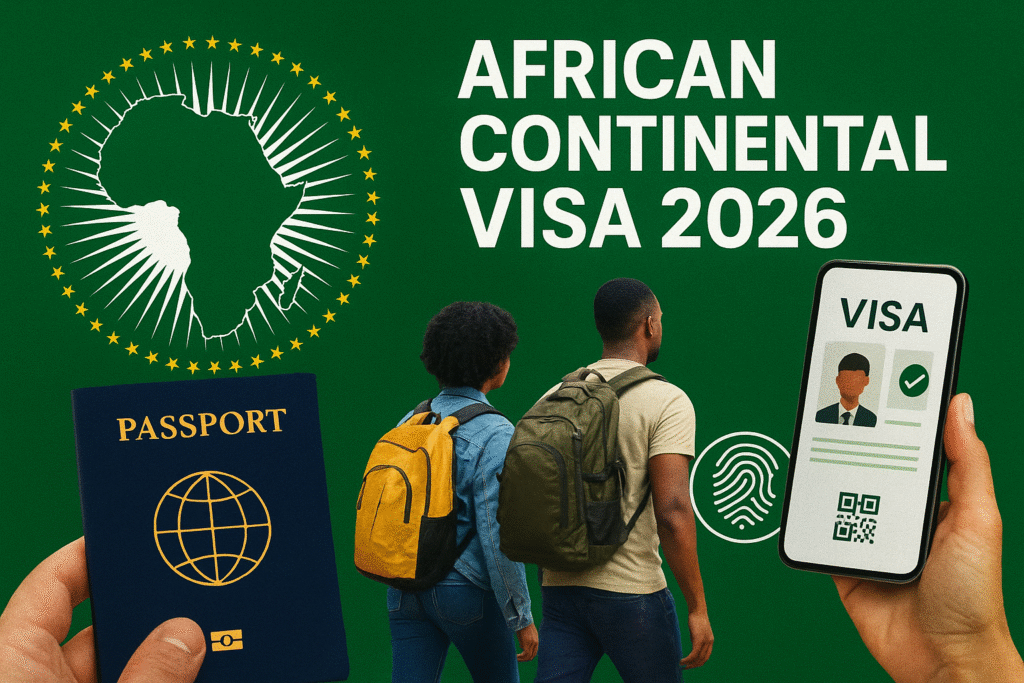African Free Movement 2026 represents one of the most ambitious regional mobility projects on the continent. The African Union (AU) and its member states are taking concrete steps toward creating a single continental visa, similar to the Schengen Zone in Europe. This reform aims to simplify intra-African travel, strengthen economic cooperation, and enhance regional integration.
The Vision of Free Movement Across Africa
The African Union first adopted the Protocol on Free Movement of Persons, Right of Residence, and Right of Establishment in 2018. Its purpose was to enable Africans to move, live, and work freely across the continent without restrictive visa barriers.
By 2026, this vision is taking real shape through a Continental Visa and digital travel systems, which will unite the economies of Africa’s 55 member states.
What the Continental Visa Means for Africans
The upcoming African Continental Visa will allow travelers to visit multiple African countries using a single document. This innovation will:
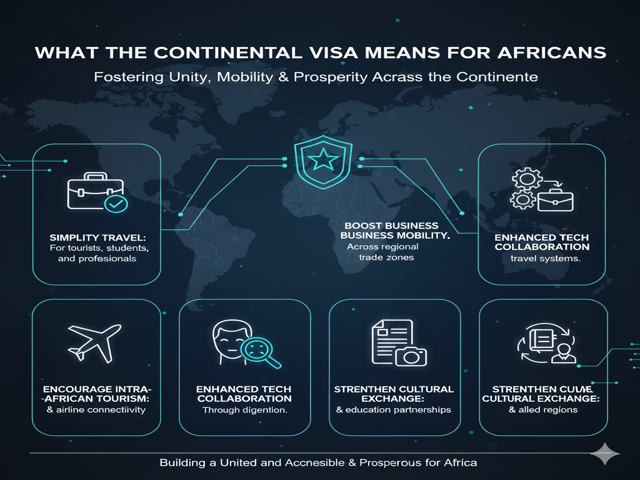
- Simplify travel for tourists, students, and professionals
- Boost business mobility across regional trade zones
- Encourage intra-African tourism and airline connectivity
- Strengthen cultural exchange and education partnerships
It also aligns with the African Continental Free Trade Area (AfCFTA) goals, allowing trade and labor mobility to grow hand-in-hand.
Economic and Trade Benefits
Free movement within Africa could increase intra-African trade by 25% by 2030, according to the African Development Bank (AfDB). The African Continental Visa will facilitate easier cross-border investments, startup collaborations, and job creation.
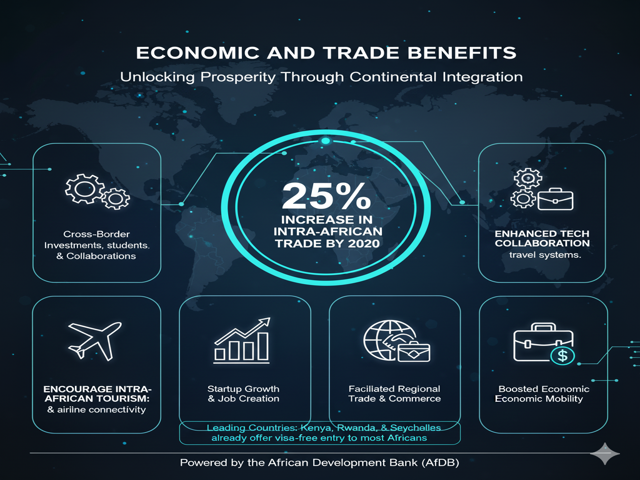
Countries like Kenya, Rwanda, Ghana, and Seychelles already offer visa-free or visa-on-arrival entry to most Africans — paving the way for a full-scale continental rollout.
Digital Integration and Border Technology
The 2026 plan includes digital identity verification, biometric screening, and blockchain-based visa tracking. The African Union’s Smart Borders Project ensures that the system remains secure, transparent, and efficient.
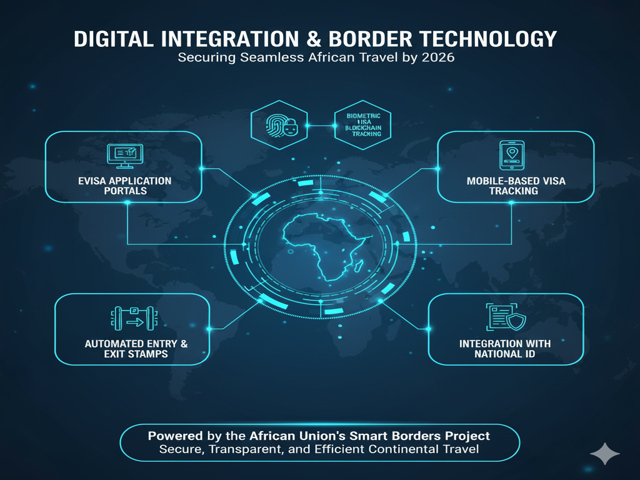
Expected features:
- eVisa application portals across member states
- Mobile-based visa status tracking
- Automated entry and exit stamps
- Integration with national ID systems
Participating Countries and Current Status
As of early 2025, 35 African nations have signed the Free Movement Protocol, and 18 have begun pilot programs for the digital visa.
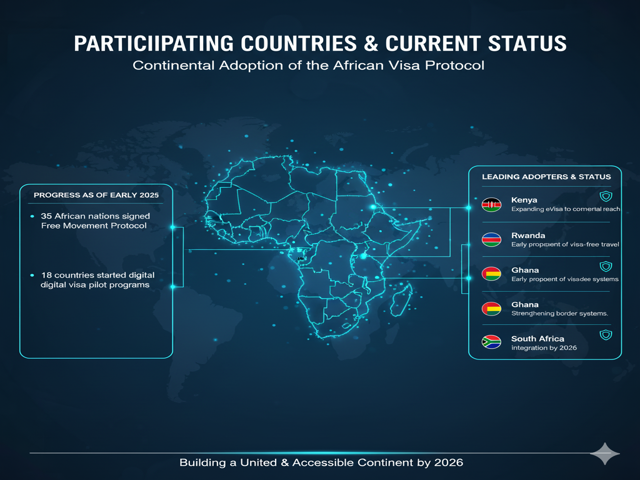
Leading adopters include:
- Kenya – expanding its eVisa to continental reach
- Rwanda – early proponent of visa-free African travel
- Ghana – strengthening border systems
- South Africa – planning phased integration by 2026
Challenges to Overcome
While the initiative is revolutionary, it faces hurdles:
- Uneven digital infrastructure across regions
- Concerns about irregular migration and border control
- Funding and coordination between national immigration systems
However, the AU Commission on Political Affairs, Peace and Security assures that digital verification tools will balance security and mobility effectively.
Voices from the Continent
“The African passport and continental visa will redefine what it means to be African,” said AU Chairperson Moussa Faki Mahamat.
“It’s about access, dignity, and opportunity for every African citizen.”
Civil society organizations and youth groups have also expressed optimism, seeing this as a pathway to pan-African unity and economic freedom.
Timeline: What’s Coming in African Free Movement 2026
- Mid-2025: Final technical trials of digital visa systems
- Late 2025: Ratification by majority AU states
- 2026 Launch: Official introduction of the African Continental Visa for short-term and business travel
Source: African Union Free Movement Protocol (AU.int)
Global Comparisons
The African Continental Visa mirrors systems like:
- EU’s Schengen Visa
- ASEAN Free Movement Framework
- CARICOM Skilled Nationals Program
These examples demonstrate how regional visa liberalization can increase GDP, tourism, and innovation.
Related Post: BRICS Visa-Free Movement
Agent Advise: A United Africa Through Mobility
African Free Movement 2026 symbolizes a turning point in Africa’s integration journey. The upcoming Continental Visa is not just a travel document — it’s a symbol of empowerment, unity, and economic rebirth. As digital technology, political will, and trade policies converge, Africa is on track to unlock its full potential.

